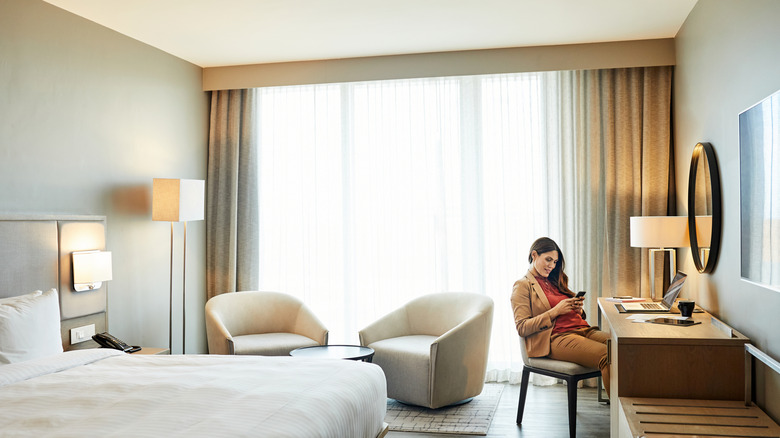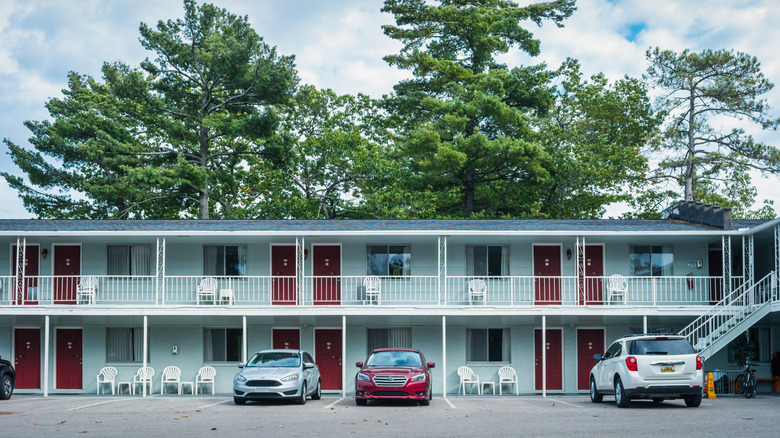What's The Difference Between A Hotel And Motel?
With only one letter of variance between them, you might think hotels and motels don't differ much from each other. And, to some extent, that's true — though the similarities mostly exist on a surface level. Both hotels and motels exist to provide guests with a private room and bed while away from home, but how and where they do that shares less overlap. Hotel comes from the French hôtel, or "hostel," a word which came into use in the Industrial Era. As faster transport introduced the concept of tourism for wealthy travelers, large mansion-like accommodations — like these luxurious Parisian hotels — replaced tiny inns as the go-to sources of lodging, meals, and hospitable service.
Meanwhile, a smash-up of the word "motor-hotel," the motel too evolved to meet travelers' changing needs. As automobile travel emerged, long-distance travel became even more accessible. As a result, motels became particularly popular in America's 1950s and 60s, catering to road-trippers on highways like Route 66, aka the "Mother Road," from Chicago to California. Whereas you'll often find hotels in city centers and vacation hubs or near airports and business districts, motels are typically situated right by the side of the road, on the outskirts of towns.
The image conjured by a hotel is typically a multistory building, accommodating rooms of various class and sizes. Motels typically have two floors with exterior-facing rooms — all the same size, for easy car access — and you might find a pool or breakfast buffet and vending machines near reception if you're lucky. Hotels, on the other hand, often have restaurants, gyms, and spas, plus a concierge and room service. Because of this, hotels tend to appeal to business travelers or luxury seekers, whereas motels offer budget-conscious wayfarers simple and safe places to spend the night.
How to choose between a hotel or motel for your stay
When choosing between a hotel or motel, it's smart to consider your length of stay. Lengthier bookings tend to fare better in hotels, and there are a variety of styles to suit different needs: Transient hotels offer comfort for a temporary stay, resort hotels tend to be more lavish and found near ski parks and beaches, and residential hotels provide a home-away-from-home to business travelers staying for a few weeks to a few months. Motels, on the other hand, serve those in need of a short-term or transit stop — no more than a one- to two-night stay is typical.
Next, what are your needs? While some motels may have an outdoor pool and breakfast with coffee in the morning, that's not always the case. However, many hotels generally offer more amenities focused on guests' comfort. Need to stretch and work up a sweat after a long day on the road? Even if you're road tripping, you may want to consider a hotel stay. Need to catch some serious Zzzs? There are a few scientific reasons you'll probably sleep better in a hotel. Of course, the lines here can get a bit fuzzy thanks to the emergence of stylish boutique motels and minimalist budget inns.
Lastly, consider cost and privacy. Hotels typically charge more, but tend to have better security with staffed lobbies and indoor rooms requiring key card entry and daily maid service. At a motel, rooms are accessed from outside the building — where anyone can see you come or go — and housekeeping may not clean up until you check out, ultimately cutting back on your final bill.

